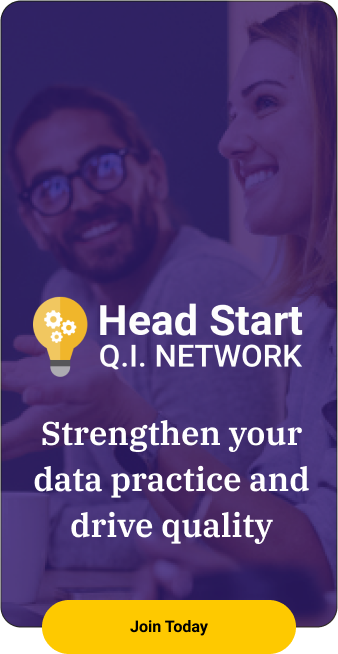Community assessments are an often misunderstood and yet critical tool for Head Start programs. Requiring inquiry, data, thoughtful analysis, they can accelerate your progress or create headaches that endure for years. Given their pivotal role, it’s amazing how little we think about them. Even if they are heavy on data, they are unfortunately often light on reflection and analysis.
Recognizing this challenge, the Q.I. Network recently invited Dr. Marilyn Hosea to present on how she approaches community assessments. If you don’t know Marilyn, she is a Head Start long-termer and a treasure – she served as the youngest Head Start program director, a Head Start Fellow at Office of Head Start, and after obtaining a doctorate in organizational management, has advised programs on planning and strategy. She has been an in-demand advisor to program leaders for decades.
Better data through asking questions
One of our takeaways from Marilyn’s presentation is that before you can collect good data or conduct real analysis, you have to ask good questions. That includes conversations with community leaders and stakeholders to understand what is driving the numbers. For example, Marilyn shared maps illustrating redlining (banks refusing to finance mortgages in certain neighborhoods), pointing out that while the practice is now illegal, neighborhoods formed at that time are still with us today and so to ignore that history undermines good analysis. Marilyn reminded us that while racial equity may be a new concept to many organizations, it was a foundational goal in the creation of Head Start in the 1960s.
As we say in improvement science, “we need to learn our way through it.” Interestingly, this is like the authentic assessment of children – if we only asked closed-ended-questions, with limited possible answers, neither we nor the children fully benefit from the conversation.
How does one ask good questions?
Marilyn’s presentation reminded us of a trailblazer in adult education, Paula Freire, who championed the open ended question as a tool for change. His approach to literacy in the 1950s has inspired community organizers around the world and arguably underlie the federal expectation that Head Start programs have Parent Policy Councils, with the understanding that parents are the local experts on their community.
Marilyn talked about a process of displaying data visually and inviting parents to circulate and comment on what they see (sometimes referred to as a data carousel). In doing so, parents provide critical insights to the meaning of particular facts, numbers or pictures. This is a valuable, Freirean-inspired approach and it prompted our thinking.
Parents provide critical insights to the meaning of particular facts, numbers or pictures.
How would Freire handle this if he were alive today? What technologies might he use? Freire was a master of crowdsourcing before there was a name for it. Can you imagine parents uploading photos to a shared Instagram or Facebook hashtag, where they displayed community resources, recreation, food stores, obstacles, trauma, faith and social gatherings? Maybe including a GIS overlay? Imagine the conversation and the insights that could inform your community assessment.
As we say in the data world: garbage in, garbage out (GIGO). Marilyn showed us some cool data visuals including heat maps that incorporated multiple, compounding stress factors, but she did this at the end of her presentation, after discussing the process for getting to that analysis.
It’s easy today to throw together some graphs and charts and call it a community assessment. But if those visuals rely on parents’ responses to a survey with a list of typical strengths, needs, and challenges, or worse still, rely only upon our assumptions, then you won’t have an effective roadmap to guide your work. Instead, we must choose the more rigorous path and engage with our families and communities as Freire taught. This approach to community assessment helps us deliver the vital services and resources that our families need most.


